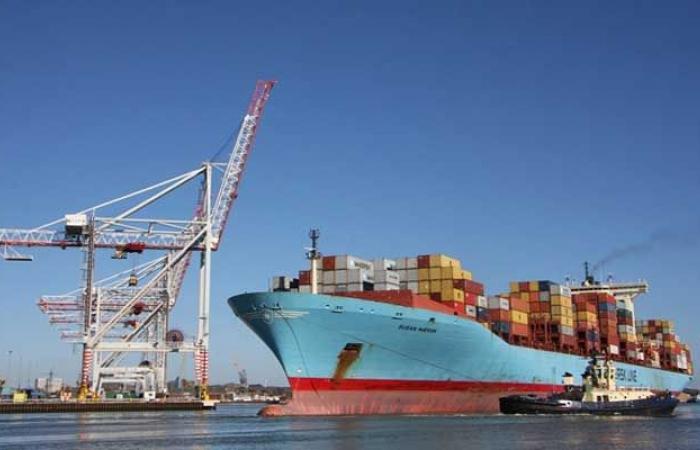The Director in charge of energy at the Merchant Navy and Ports Office (OMMP) Atef Arfa indicated, Thursday, that the office has carried out a feasibility study for the implementation of a project for the electrical connection of commercial ships to the port of La Goulette by 2027. The objective of this project is to contribute to the fight against marine pollution and greenhouse gas emissions from ships.
He said, during a conference held by the OMMP to celebrate World Maritime Day, that the study highlighted positive results for the implementation of this project, including the reduction of 40% or 50% of greenhouse gas emissions from ships, which harm the environment during the docking of ships in ports.
He stressed that this project, financed by the French Development Agency (AFD), will be carried out in the port of La Goulette, as a pilot experiment, in favor of the two ships “Tanit” and “Carthage”, under the Tunisian Navigation Company (CTN). This experiment should subsequently be generalized to all the ports of the country.
He noted on the occasion of the celebration of World Maritime Day that this project aims to allow ships upon arrival at port to stop their engines and use the electrical network, to ensure the continuity of the services they provide on board, throughout the period of their embarkation.
The official said that OMPP is currently preparing detailed additional studies and launching the call for tenders aimed at facilitating the effective start of the project.
IMO celebrates World Maritime Day at the end of September each year, given the importance of maritime trade which accounts for 92% of global trade.
This event is an important opportunity to raise awareness of the need to combat the increase in marine pollution and move towards responsible and environmentally friendly maritime transport and green ports.
Tunisia is committed to respecting international regulations and legislative texts emanating from the International Maritime Organization and international agreements signed to ensure the safety of crews and ships and the efficiency of maritime transport, such as the 1974 International Convention for the Safety of Life at Sea (SOLAS Convention) and the International Convention for the Prevention of Pollution from Ships (MARPOL).






